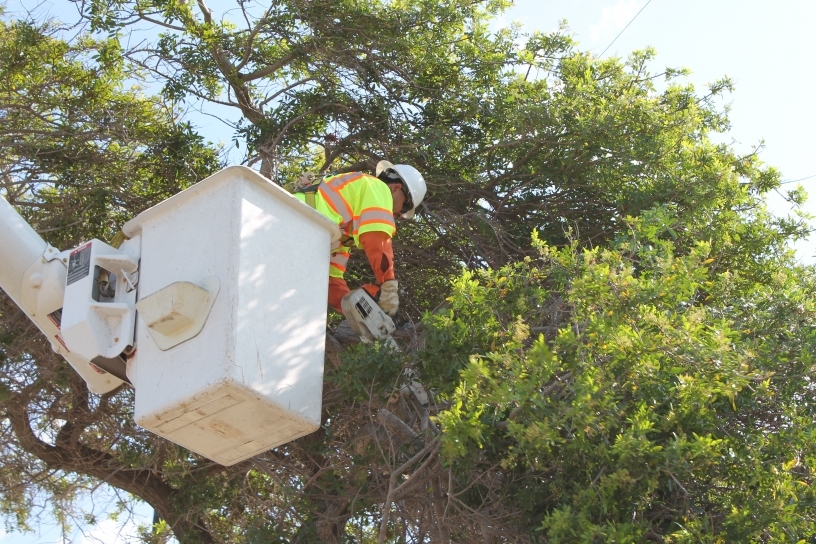New Tracker Available to Show Progress of Climate Resilient SD Plan Goals

Following its commitment to make San Diego resilient in the face of climate change-related impacts and improve local communities, today the City of San Diego launched an implementation tracker on its website to share progress on actions taken by the City and updates to climate resiliency strategies.
Climate Resilient SD is the City of San Diego’s plan to prepare for, respond to and recover from the four primary climate change-related hazards: extreme heat, sea level rise, flooding/drought and wildfires.
“Building healthy, sustainable and resilient communities is imperative as we adapt so that we can thrive in our changing climate,” said City Planning Director Heidi Vonblum. “The progress we’ve made has required the coordination and commitment of community-based organizations, nonprofit organizations, regional partners, community members and all City departments. We are proud of the work we’ve done and will continue to work hard as we move ahead together.”
The City Council adopted Climate Resilient SD in December 2021 and, since then, the City has been working to implement the goals in the plan. These include maintaining critical City services; ensuring communities are connected and informed; building a resilient and equitable city; safeguarding, preserving and protecting historical and tribal cultural resources; and supporting and prioritizing thriving natural environments.
Within each of these goals are policies and 86 adaptation strategies to be implemented over time. The implementation tracker lays out the City’s progress for each of those strategies and covers implementation highlights.
Highlights include:
- The Urban Tree Canopy Fee was established in August 2022 for the City to plant and maintain street trees. In addition, the City planted 1,237 new trees. Trees reduce heat island effect, provide cleaner air, absorb stormwater runoff, enhance the pedestrian experience and promote walkable communities.
- The City continued construction of Pure Water SD Phase 1 facilities and is continuing planning studies for Phase 2. Upon completion in 2035, Pure Water will provide nearly half of San Diego's drinking water supply, reducing the City's dependence on imported water and providing a reliable, sustainable water supply.
- The City continued progress to implement eight renewable microgrids. The microgrids will help the City reduce energy consumption and greenhouse gas (GHG) emissions, provide resiliency during grid outages and save on energy costs.
- The City’s Office of Emergency Services trained and educated City employees and local community members on preparing for climate change-related hazards and emergencies.
- In fiscal year 2023, the Far South/Border North grant program was launched. Sixty artists and cultural practitioners received grant funds to develop and implement public campaigns tied to program goals, including water and energy conservation and climate mitigation.
- The City updated two council policies that set the guidelines for developing the City’s Capital Improvements Program and how the City engages with San Diegans to collect input about neighborhood infrastructure needs. These updates will support delivering infrastructure to San Diegans where it is wanted and most needed based on needs and the expected service level.
- The City Planning Department welcomed new staff who will serve as a tribal liaison. They will consult with representatives of the Kumeyaay Nation on department initiatives, including Climate Resilient SD policies and projects, to ensure that San Diego's Tribal Cultural resources are protected where possible from climate change-related hazards. Through ongoing dialogue and relationships with the Kumeyaay Nation, the City also hopes to examine opportunities to respond to climate change-related hazards through Traditional Ecological Knowledge.
- The Stormwater Department, in partnership with two local nonprofits, organized 49 community cleanup events across the City. These cleanups brought together 2,796 volunteers who were able to collect roughly 43,000 pounds of trash.
To read the policies, strategies and more implementation highlights, San Diegans can visit the Climate Resilient SD website.
